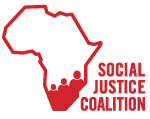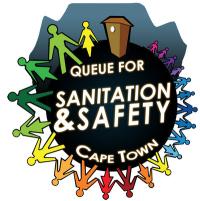SJC/NU Calls on City of Cape Town to Release Service Delivery Agreements For Contractors Operating In Informal Settlements
The Social Justice Coalition (SJC) has observed that refuse collection in informal settlements is often irregular and of very poor quality. Refuse is often left rotting for days or weeks, contributing to the spread of disease.
All refuse collection for informal settlements in the City of Cape Town is outsourced to private contractors, which in our view limits accountability and recourse. In addition, the provision and maintenance of sanitation services, which are also outsourced, are either non-existent or of a poor quality.




